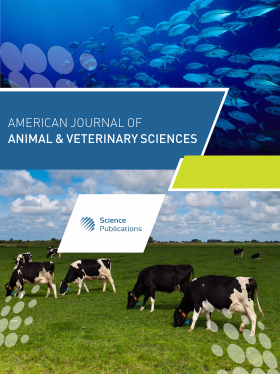Flow Cytometry Baseline on Peripheral Leukocyte Cell Profiles for Dairy Goat Kids
- 1 Colorado State University, United States
Abstract
Small ruminants, like goats, would make excellent animal models for not only infectious diseases in large ruminants but also analogous diseases in humans, such as human tuberculosis, Crohn’s disease, melioidosis and brucellosis. The main disadvantage for the small ruminant model is the lack of sufficient baseline data on normal, healthy goat kids. Furthermore, most reagents (antibodies and the like) were not developed for goats or sheep. It is important to demonstrate that available resources, especially from the bovine system, cross-react with the caprine and/or ovine system. Finally, potential breed differences have to be evaluated before goat or sheep studies are compared. In this study, leukocyte cell populations were defined in twenty-six dairy goat kids via flow cytometry. We report no significant differences between three breeds of dairy goat kids and demonstrate the effective use of various antibodies for caprine immune cell markers. No breed-specific differences were detected for any leukocyte cell population or for markers specific for various antigen-presenting cells or T cell populations. Interestingly, however, statistical significant differences were found for leukocyte cell populations for the two different time points two weeks apart presented in this study.
DOI: https://doi.org/10.3844/ajavsp.2013.177.189

- 6,010 Views
- 5,880 Downloads
- 0 Citations
Download
Keywords
- Goat
- Peripheral Blood Leukocytes
- Cell Surface Marker
- Flow Cytometry
